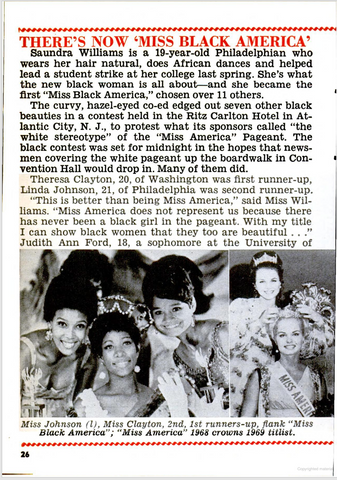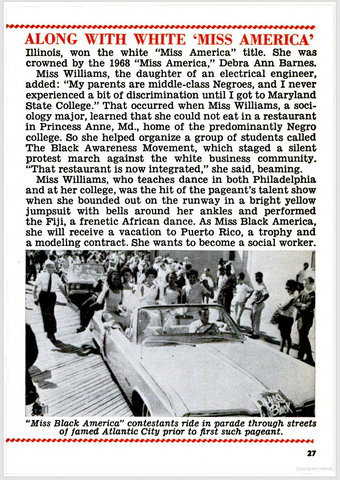
Miss Black America: The Pageant that Changed the Game
Share
Racism was a pervasive issue in the early days of the Miss America pageant. Established in 1921, the pageant was initially segregated, and black women were barred from participating. It wasn't until later years that the first black woman was allowed to compete, but only in a separate "Negro" portion of the event.
Under the directorship of Lenora Slaughter, the pageant enforced racial segregation through rule number seven, which stated that "contestants must be of good health and of the white race." This rule excluded black women from participating in the competition. Although the rule was abolished in 1950, black women continued to face discrimination and bias in the pageant industry for many years.
The Miss Black America pageant was created in response to the exclusion of Black women from the Miss America pageant. Organized by J. Morris Anderson, a Philadelphia entrepreneur, it was held on August 17, 1968, in Atlantic City, New Jersey. The pageant drew contestants from across the country and provided a platform for Black women to showcase their beauty, intelligence, and talent. Saundra Williams, a 22-year-old from Philadelphia, won the first pageant and went on to become a prominent civil rights activist.


The Miss Black America pageant quickly gained popularity and became an important event in the black community. It was broadcast on national television and attracted major sponsors, including Coca-Cola and Ebony magazine. The pageant also served as a platform for black women to address their issues and promote culture and pride. It also paved the way for future beauty pageants, including Miss Black USA and Miss Black Teen America. Eventually, it inspired changes in the Miss America pageant, which began to include more diverse contestants and judges in years to come.
As we reflect on the history of black women in beauty pageants, we must celebrate their achievements and ongoing progress. Black beauty pageants often challenge narrow beauty standards and empower black women. At The Trini Gee, we're proud to show our support with our product images. The shirt below features a beautiful black queen being crowned and serves as a symbol of our commitment to inclusivity and diversity. Visit our website to get yours today and show your support for the community.
